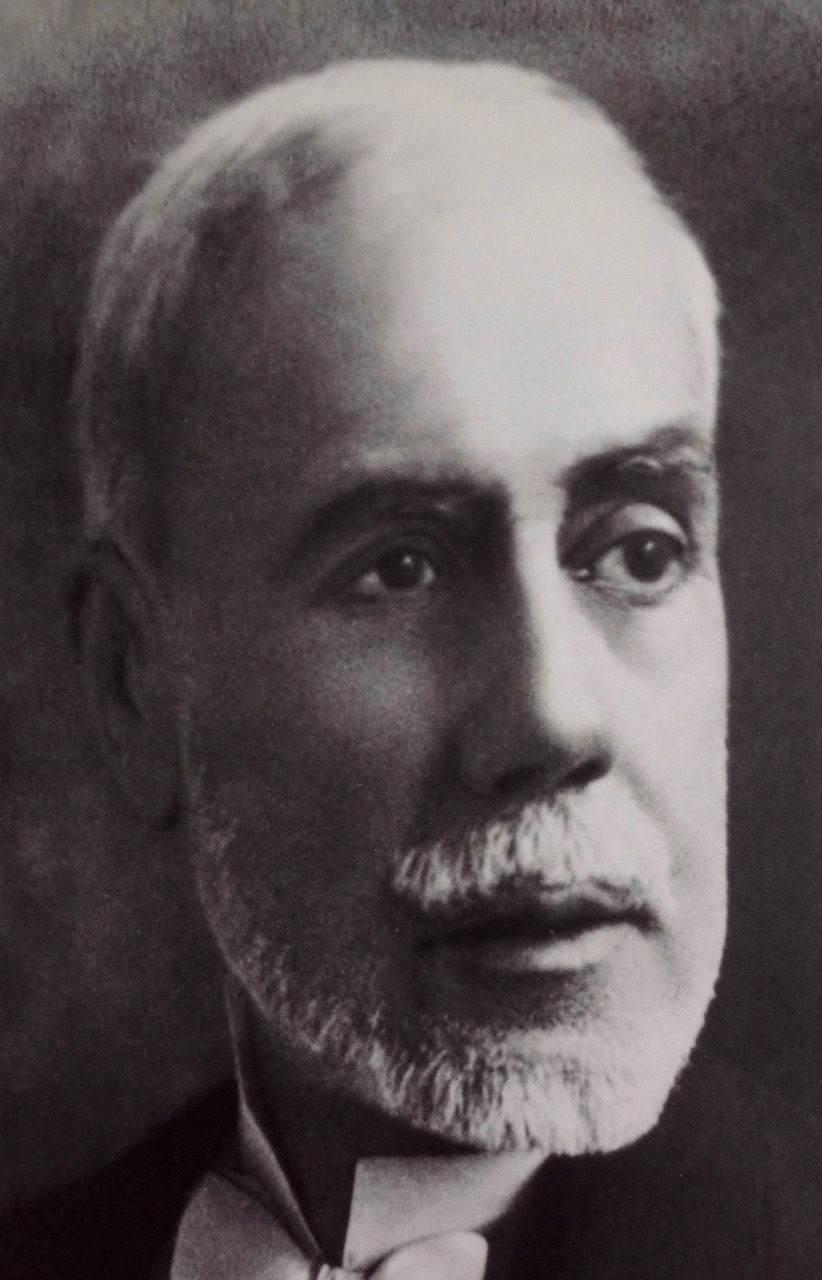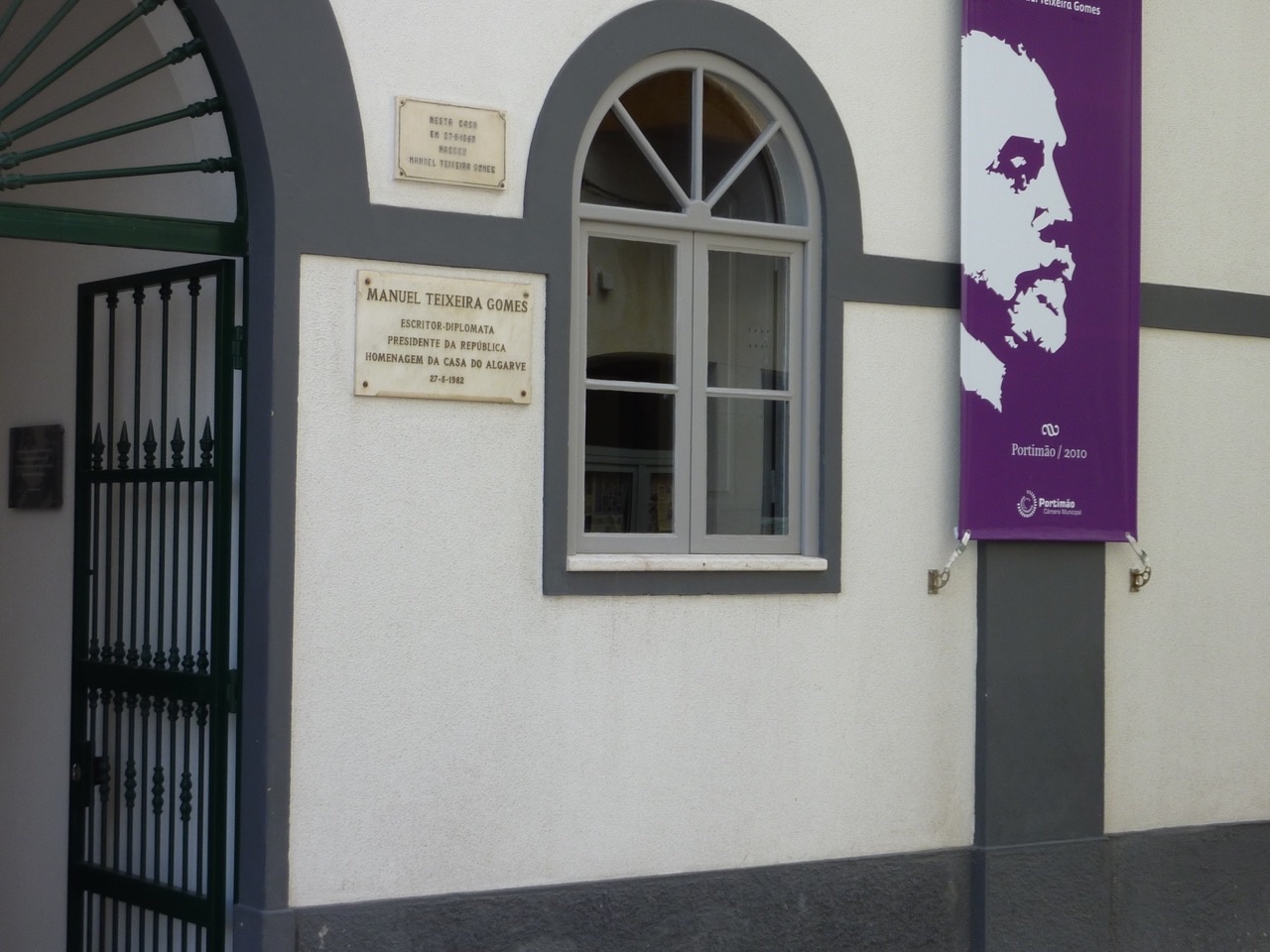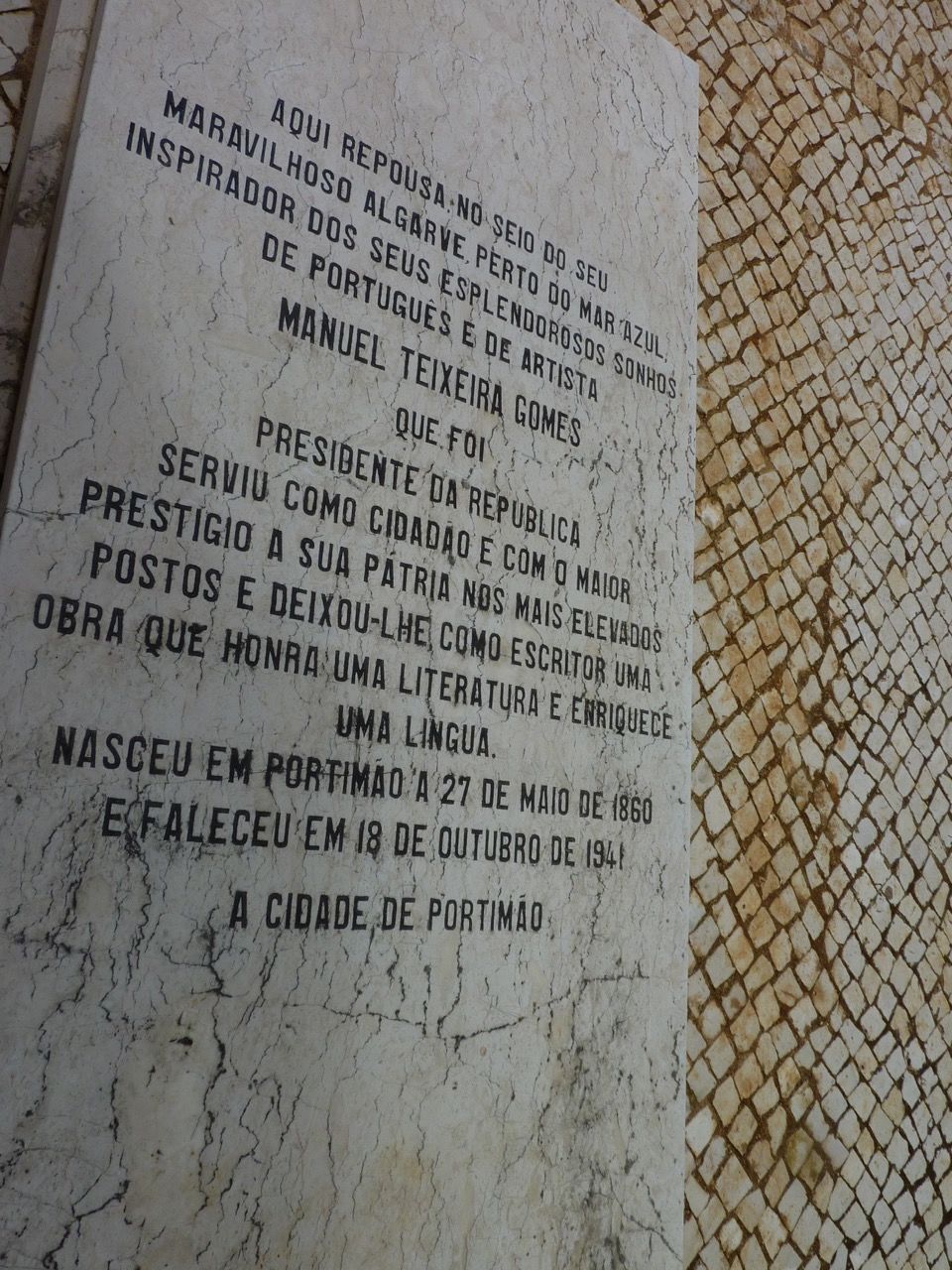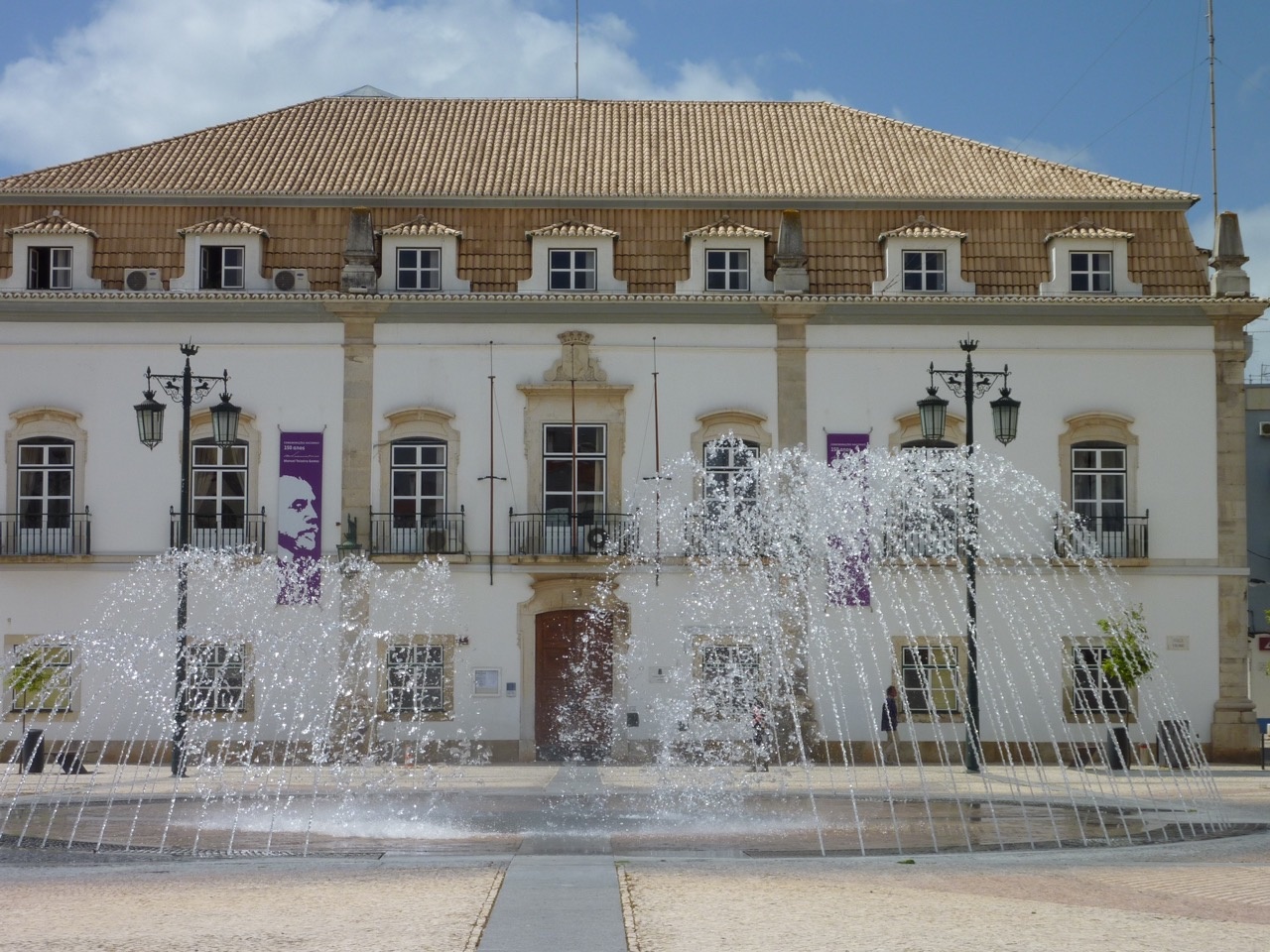Lynne Booker

Celebrations have already started in commemoration of the 150th anniversary of the birth of one of the Algarve´s most famous sons - Manuel Teixeira Gomes. The first Algarvean president of Portugal; a committed Republican who was also the friend of George V of Great Britain; the polymath; the writer; the friend of the Portuguese literati in the early 20th century; the explorer; the father of two illegitmate daughters and finally the exile in room 13 of L´Étoile hotel in Bougie in French Algeria. It is no wonder that the Câmara of Portimão are dedicating a whole year of cultural activities to this talented and honourable native of their city. The esteem in which Portugal holds this remarkable man is indicated in the unprecedented number of national contributions to the year of celebrations.

Manuel Teixeira Gomes was born in Vila Nova de Portimão on 27 May 1860 to José Libâno Gomes and Maria Glória Teixeira. His father was a wealthy landowner who had once been the Belgian Consul in the Algarve. Manuel attended first the São Luís Gonzaga College in Portimão, second the Coimbra Seminary from the age of ten as a boarder and at the age of 15 he enrolled in the medical faculty of Coimbra University. He soon gave up - the lessons were boring, the regulations depressing and the masters were barbarous. Along with many other young intellectuals of his time, he decided on a Bohemian life of ´poverty, hunger and literature´. He spent his time in Lisbon and then after his military service, in Porto. He mixed with other intellectuals and ´culture vultures´and also with members of the growing republican movement. His friends included such people as José Relvas (the man who on 5 October 1910 would proclaim the republic from the balcony of Lisbon City Hall), Fialho de Almeida (doctor and writer) and João de Deus (the most famous lyrical poet of the time, also an Algarvean). Gomes began his career as a journalist by making contributions to various newspapers such as Gil Vicente, Folha Nova and Primeiro de Janeiro.
Gomes´next incarnation was as ´marketing manager´for his father´s new enterprise, Sindicato de Exportadores de Figos do Algarve. When the syndicate folded, Libâno and Manuel continued the business on their own. Gomes spent the next 4 years travelling widely in Europe, the Near East and North Africa - always returning to Portugal in time for the fig harvest. In 1895 Gomes re-established his links with the literary circles of Lisbon where he met, amongst many others, such literary lions as the playwright Marcelino Mesquita, and the poet Gomes Leal. In 1899 he published his first book, O Inventário do Junho.
Gomes´love life can be described as Bohemian. At the age of 39 he fell in love with a thirteen year old local girl from Portimão. She was the daughter of a very poor fisherman and Gomes came from an important wealthy land-owning background. Belmira das Neves was apparently a beauty. and he had 2 children by her, Manuela and Ana Rosa. Gomes´family would not allow Manuel to marry his Belmira.
Gomes had an encyclopaedic knowledge, could speak 6 languages and his writing style of the Portuguese language put him in the top rank of writers in the early 20th century. He published Cartas sem Moral Nenhuma and Agosto Azul, in 1904, Sabrina Freire in 1905, Desenhos e Anedotas de João de Deus in 1907 and Gente Singular in 1909. His political contacts found use for his talents very soon after the declaration of the Republic on 5 October 1910. He was sent to London as Ambassador to represent the new republic. This appeared to be a tough task because Britain was anti-republican, and certainly anti-revolutionary. A bit different from ´oldest ally´status that Britain and Portugal had ´enjoyed´for 600 years.
Gomes was not a strident republican; he was described as being calm, civilised and cultured. Gomes became popular with both the British Government and with King George V. He remained as Ambassador to the Court of St James from 1911 until 1918 when he was recalled by the President, Sidónio Pais, who put him under house arrest. After the assassination of Pais a year later Gomes returned to the United Kingdom and remained Ambassador until 1923. He was a member of the Portuguese Delegation at the Paris Peace Conference (1919-1920) and the unsuccessful candidate of the Democratic Party at the presidential elections of 1919. Gomes served as Vice-President of the General Assembly of the League of Nations. He was elected President of the Republic by the two courts of congress on 5 August 1923, and he travelled from Britain on a British warship to take up his new duties in Portugal. He arrived on 3 October 1923 and was formally sworn in as President of the Republic of Portugal on 5 October 1923.
The powers of the President were purposely limited and the First Republic was notoriously unstable. From 1910-1926 Portugal had 8 Presidents, 1 provisional government, 38 Prime Ministers and 1 constitutional junta. Although Gomes had been elected to this post, he soon discovered that he could not rely on the support of those who had seemed to be his friends. Gomes was dedicated to the concept of democracy, he was knowledgeable, capable and put the interests of the country in front of everything else. The English writer, E M Forster, wrote often about ´the indomitable spirit of mediocrity´ and it is unfortunate that in many organisations able altruists are brought down by the petty jealousies of bureaucratic nonentities. This was Gomes´fate. In the madhouse of Portuguese politics, Gomes became increasingly frustrated and disillusioned. He was surrounded by inconvenient generals, undisciplined soldiers, cowardly ministers, corrupt bankers, coarse deputies and on December 11, 1925, it finally became too much. He resigned the Presidency and disposed of the movables from his house in Lisbon which stood on a site now occupied by the Marginal. He left the country for ever on December 17, 1925 on a Dutch cargo steamer called Zeus.
Gomes spent 5 years touring archaeological sites around the Mediterranean before settling in a hotel in Bougie, French Algeria, where he occupied room 13 for the remaing 10 years of his life. Although he continued to write, the regime in Portugal would not permit his works to be published. He died aged 81 on 18 October 1941, and when his body was returned to Portugal on 18 October 1950, many republicans attended the reinterment in Portimão´s municipal cemetery, and the PIDE was there to photograph them all.

In his Presidency, Gomes had raised the status of Vila Nova de Portimão to that of a city. The city is now repaying him with an exciting year long programme of events which happily includes the centennial of the Portuguese Republic on 5 October this year. Not to be missed is Bernardo Sasseti´s ´Gente Singular´on 27 May (concert with the Sinfonietta de Lisboa); Visões do Sul (a film festival based on the countries Gomes visited, 26-30 October); Sabina Freire (opera based on Gomes´novel of the same name, 10 and 11 December).

